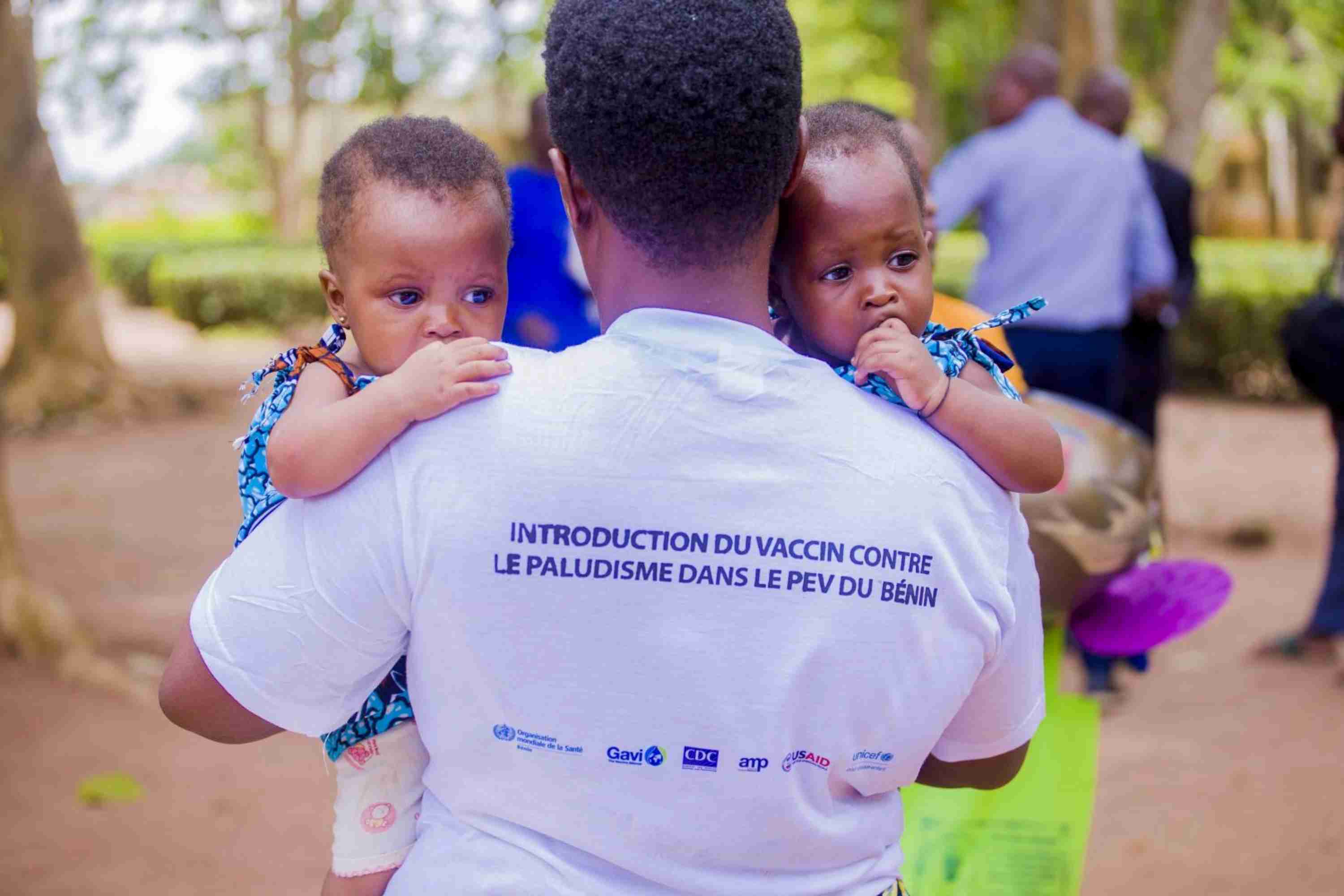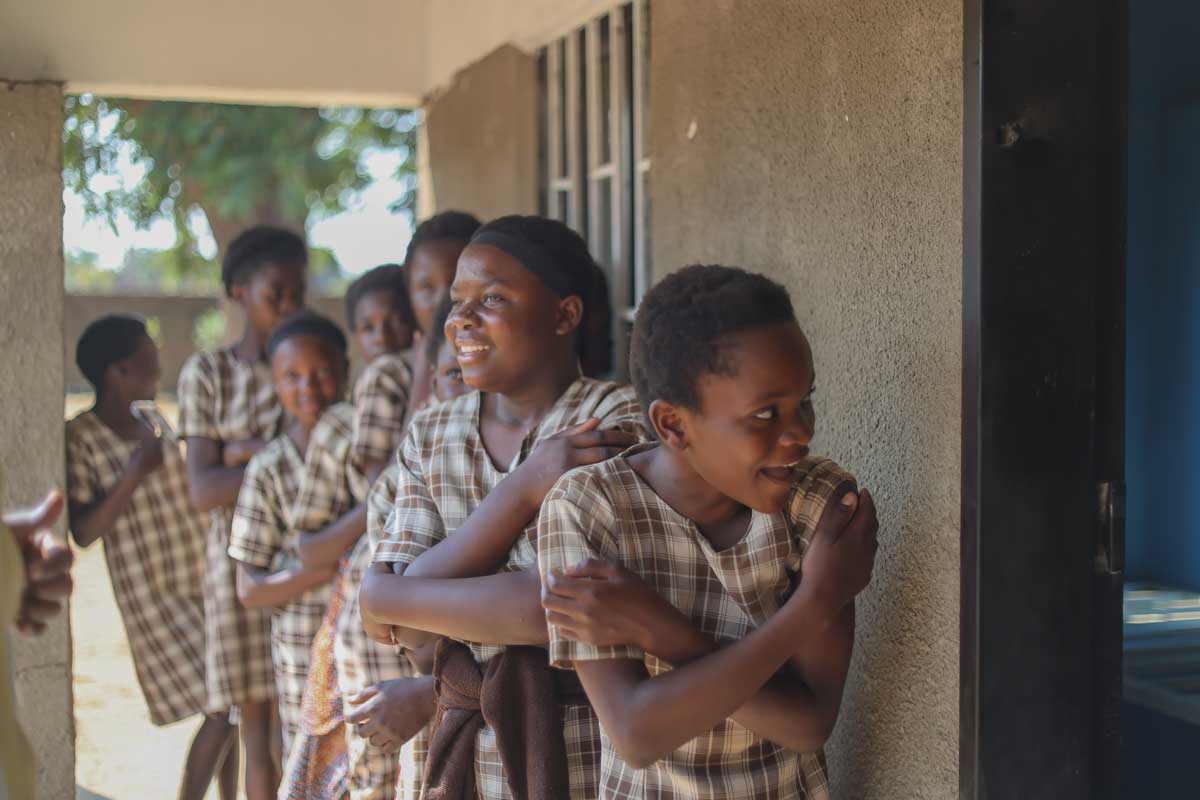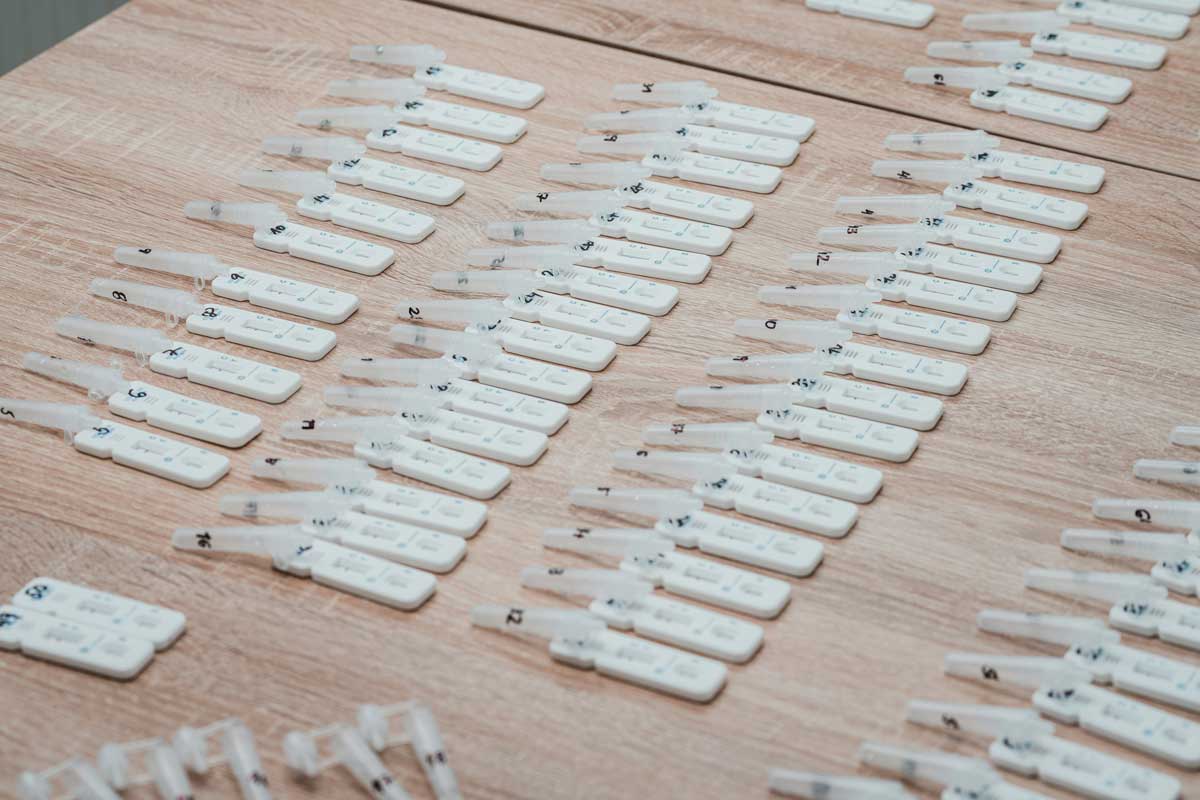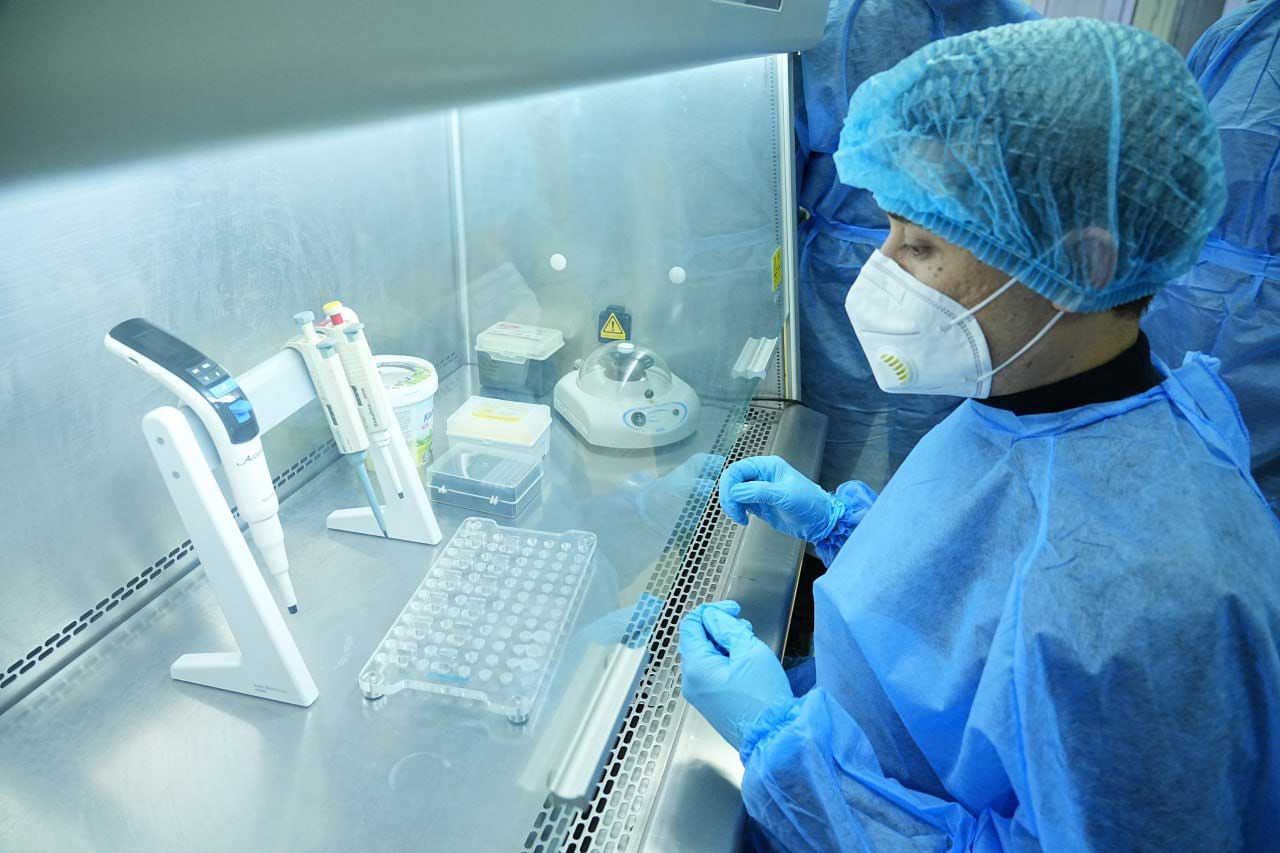“I’ve had enough of witnessing despair”: relief and hope greet Benin’s malaria vaccine roll-out
On April 25, Benin will begin administering RTS,S malaria vaccines to children, in a move experts anticipate will turn the tide on a disease that claims more than 10,000 lives a year.
- 23 April 2024
- 7 min read
- by Edna Fleure
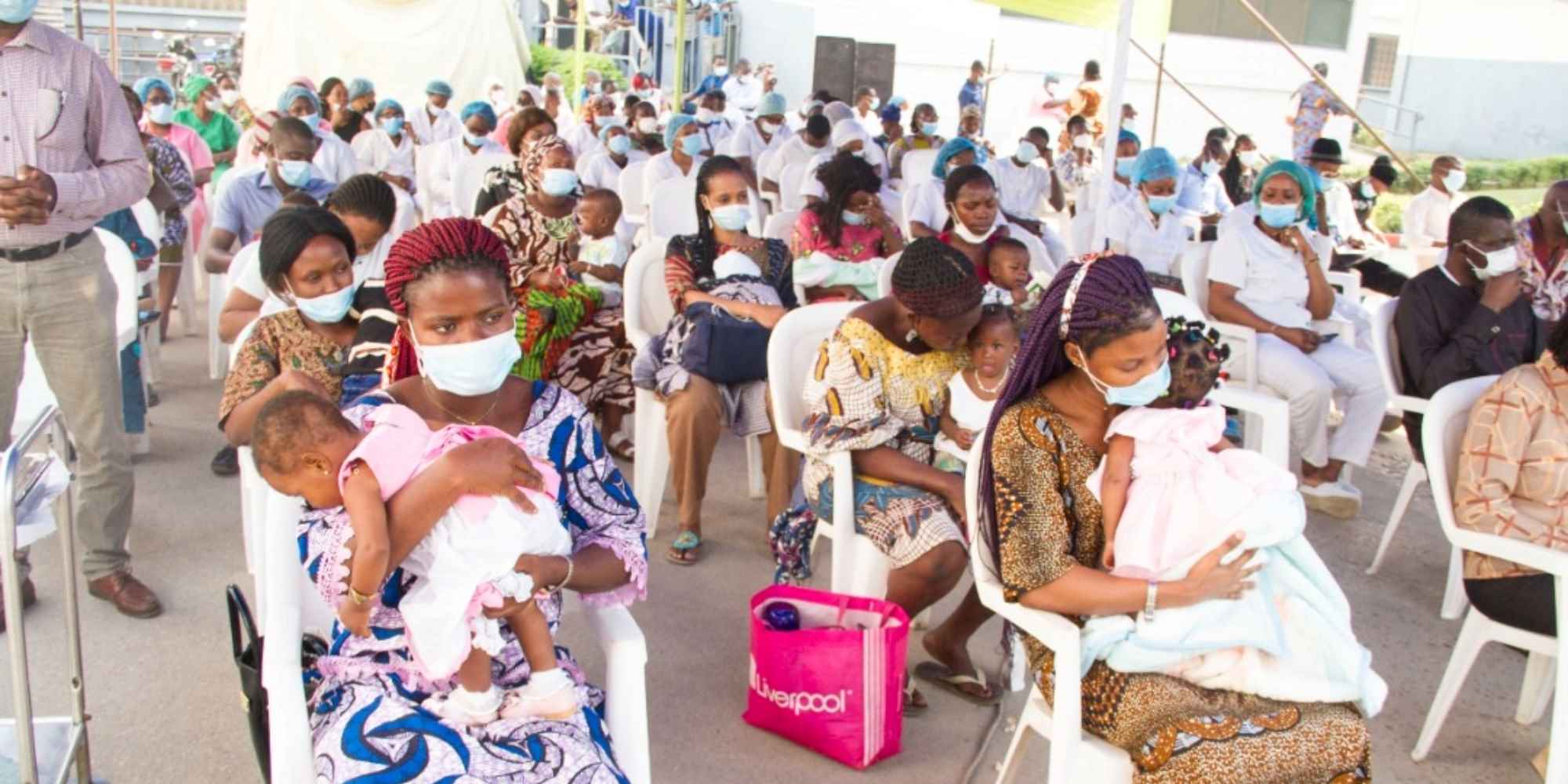
Dr Godwin Kpoton, a physician from Lalo community in the south-west of Benin, has seen too many fragile children succumb to malaria.
"As a doctor, it pains me deeply to receive children in consultation and, in some cases, be unable to do anything to save them. Sometimes, parents take time to decide to take their children to the hospital, often influenced by their financial situation. When the worst is avoided, it's uncertain if the child will have lasting side-effects."
“If the other preventive measures we know were sufficient, we wouldn't witness so many child deaths. The annual toll of children dying in health centres in Benin is equivalent to several airplane crashes."
– Dr Rodrigue Kakpo Zannou, physician, Hôpital de zone d'Abomey-Calavi
According to WHO, Benin, home to about 13.4 million people, saw an estimated 5.1 million malaria cases and 11,000 deaths in 2022. Most of those deaths were among children aged under five. Those grim statistics may be at the point of turning, however: on April 25, World Malaria Day, the country will begin to deliver the RTS,S malaria vaccine to children as part of its routine immunisation programme.
For Dr Rodrigue Kakpo Zannou, a physician at the Hôpital de zone d'Abomey-Calavi in the southern part of the country, the vaccine lands as a much-needed shot at saving many more lives. "We shouldn't bear such a heavy toll for malaria today, especially when it comes to children," he says.
"If the other preventive measures we know were sufficient, we wouldn't witness so many child deaths," he continues. "The annual toll of children dying in health centres in Benin is equivalent to several airplane crashes. Hence, I think it's because other preventive measures fall short that we are compelled to resort to additional tools like the vaccine."
Celebration "justified" at milestone moment
The Beninese government submitted its expression of interest in rolling out the RTS,S vaccine as routine, and, in July 2023, the country was announced by Gavi, the Vaccine Alliance, WHO and UNICEF as one of the first 12 countries allocated doses of the groundbreaking jab.
“When I think about the resource savings from reduced hospitalisations, when I consider the relief on the country’s health care system, I am convinced that we are witnessing something significant. And we are entirely justified in celebrating this,”
– Salvator Niyonzima, UN Resident Coordinator
In January this year, the Minister of Health, Benjamin Hounkpatin, along with the UN Resident Coordinator, presided over the official ceremony for the receipt of 215,900 vaccine doses. UNICEF and WHO agency heads, as well as officials from the National Agency for Primary Health Care, were present.
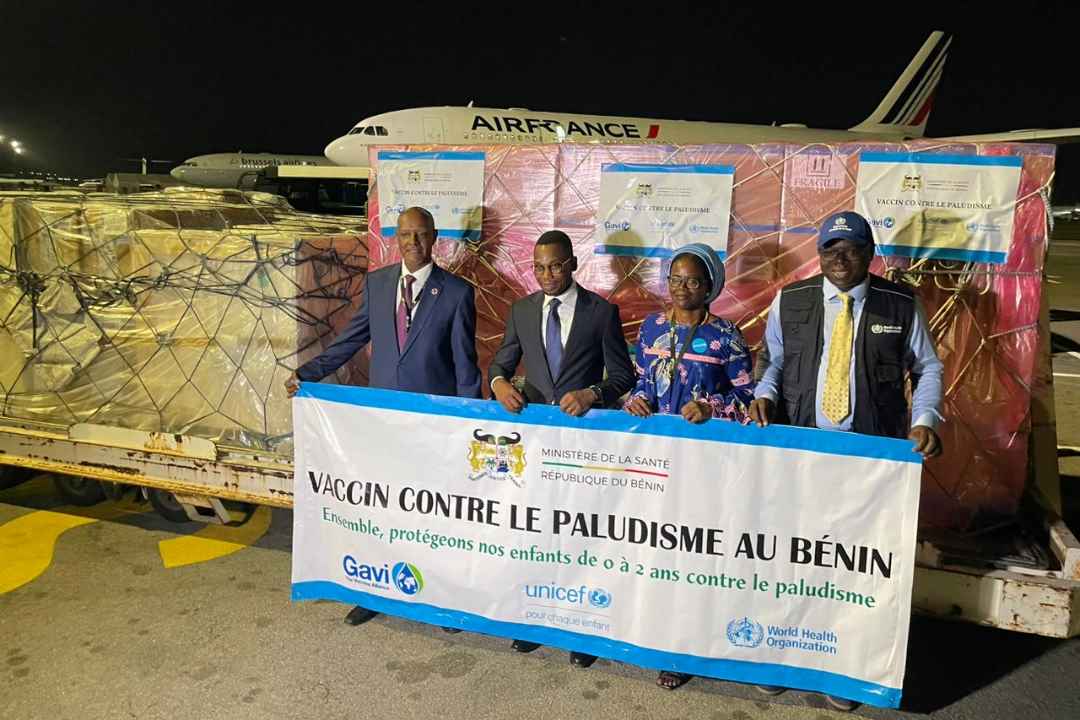
Credit: Edna Fleure
The incorporation of the malaria vaccine into the Expanded Programme on Immunization (EPI) is anticipated to reduce severe malaria cases in the immunised cohort and have a substantial impact on decreasing child mortality. Dr Faustin Yao, a vaccination specialist at the UNICEF office, said, "Receiving these initial vaccine doses is a genuine accomplishment. It signifies the ability to administer these vaccines to children, ultimately saving lives and drastically reducing the number of children succumbing to malaria. For this inaugural year of introduction, approximately 200,000 children will be covered. The adopted schedule involves a four-dose regimen (at six months, seven months, nine months, and for children under two years)."
Have you read?
Malaria places Benin's health care system under massive pressure, as Salvator Niyonzima, the UN Resident Coordinator for the country, pointed out on the airport tarmac in January. "When I think about the resource savings from reduced hospitalisations, when I consider the relief on the country's health care system, I am convinced that we are witnessing something significant. And we are entirely justified in celebrating this," he stated.
“I believe I will be among the first on the list to have my child vaccinated. I urge parents to take their children for vaccination when the campaign is launched. It is in our best interest, and it is about the health of our children.”
– Inès A, mother of a one-year-old malaria patient in Cotonou
Experts and health policymakers are unanimous in cautioning that for optimum impact, the antimalarial vaccines require seamless integration with other WHO recommendations for malaria control. This encompasses the utilisation of insecticide-treated bed-nets, indoor residual spraying, intermittent preventive treatment for pregnant women, access to antimalarial drugs, and effective case management and treatment, as Health Minister Benjamin Hounkpatin enumerated.
"I will be among the first"
Expressing his joy at the imminent commencement of routine malaria vaccination, the Minister made a heartfelt appeal to parents. "I encourage the population, especially parents, to have their children vaccinated against malaria to protect them from this deadly disease. I would like to once again remind the public that vaccination remains one of the safest, most effective and cost-effective strategies to combat diseases. I remain hopeful that with the malaria vaccination initiative, we will soon overcome this [illness]," he declared.
Dr Kakpo Zannou, meanwhile, acknowledges the potential challenges ahead. He is aware that persuading parents of the importance of this new vaccine will require a considerable effort. "Like any new vaccine, I know that many will be hesitant to have it administered to their children, but I believe that based on past experiences, there will be a stronger emphasis on communication and community awareness to help them understand the value of this vaccine, avoiding unnecessary controversies," he remarks.
But for many others, the vaccine can't come soon enough. Inès A., a permanent government employee, requires no persuasion. She's been on leave for almost a week to stay by her one-year-old child's side in the paediatric ward of the Mother and Child Hospital in Cotonou. Her baby has developed a severe form of malaria accompanied by severe anaemia. "I believe I will be among the first on the list to have my child vaccinated. I know what I spend on my child's medical care. I don't believe anyone would want to harm our children with a vaccine. I urge parents to take their children for vaccination when the campaign is launched. It is in our best interest, and it is about the health of our children."
“I’ve had enough of witnessing the despair of parents who lost their children to malaria.”
– Olga H
Olga H. expresses uncertainty about taking her six-month-old for the first dose, worrying it might be administered without forewarning or consent during routine vaccination sessions. "I am very cautious," she says. But she is open to changing her mind. "I want everything to be explained to me properly. If I am convinced, I will have my child vaccinated. Otherwise, I will continue with what I did for my other children."
The EPI has been training vaccinators so they are equipped to effectively address concerns that could be raised by parents like Olga H. Moreover, among civil society leaders, the countdown to the introduction of the RTS,S vaccine has been long underway. Dah-Bolinon Hounlidji, a religious leader who often feels helpless witnessing child deaths from malaria in his locality, is resolved to raise awareness of the value of the vaccine among the eligible in his community. "I've had enough of witnessing the despair of parents who lost their children to malaria."
This article was translated from the original French. To view the original click here.

